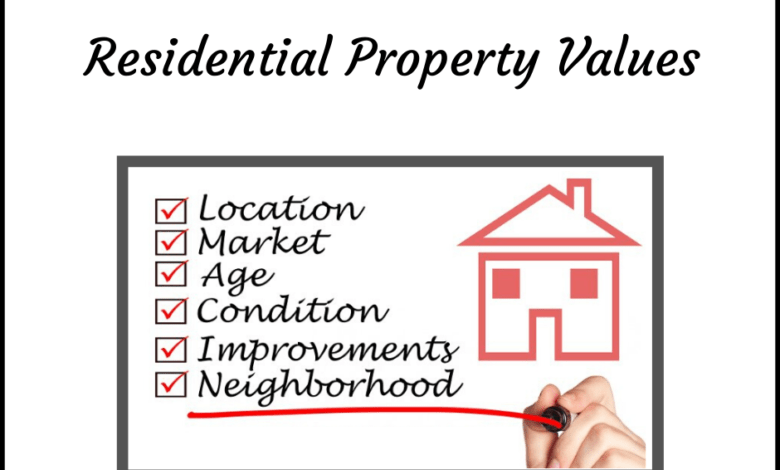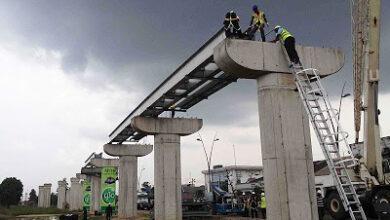
10 Factors Affecting Property Value In Nigeria
Factors Affecting Property Value In Nigeria – Property value in Nigeria refers to the worth of real estate assets such as land, buildings, and homes. The value of these properties can fluctuate due to a variety of factors, including location, economic conditions, and market demand. In recent years, the Nigerian property market has seen significant growth, driven by factors such as urbanization, population growth, and a growing middle class.Information Guide Nigeria
Despite this growth, however, the market remains challenging for both buyers and sellers, due to factors such as lack of transparency, inadequate infrastructure, and limited access to financing. Despite these challenges, many experts believe that the Nigerian property market has significant potential for growth in the coming years.
👉 Relocate to Canada Today!
Live, Study and Work in Canada. No Payment is Required! Hurry Now click here to Apply >> Immigrate to CanadaRead Also: 10 Factors Affecting Rail Transport Performance In Nigeria
What is Property Value?
Property value refers to the estimated monetary worth of a piece of real estate. This value can be determined through a variety of methods, such as a professional appraisal or a comparison to similar properties in the area. Property value can be influenced by factors such as location, size, condition, and amenities. It is used for various purposes such as buying or selling, mortgage lending, property tax, and insurance.Factors Affecting Property Value
Types of Property Value in Nigeria
There are several types of property value in Nigeria, including:
1. Market Value:
This is the most common type of property value, and it represents the price that a property would sell for on the open market.
2. Assessed Value:
This type of value is determined by a government assessor and is used for tax purposes.
3. Appraised Value:
This is a value determined by a professional appraiser and is often used for lending and insurance purposes.
4. Insurable Value:
This is the value of a property to insure it against loss or damage. 30 Best University In Nigeria For Public Administration
5. Investment Value:
This is the value of a property based on its potential for earning income or appreciation.
👉 Relocate to Canada Today!
Live, Study and Work in Canada. No Payment is Required! Hurry Now click here to Apply >> Immigrate to Canada6. Development Value:
This is the value of a property based on its potential for development or redevelopment.
Advantages of Property Value in Nigeria
Some advantages of investing in property in Nigeria include:
1. High Demand:
Nigeria has a rapidly growing population, which creates a high demand for housing.
2. Potential for Appreciation:
Property values in Nigeria have historically appreciated at a high rate, providing potential for strong returns on investment.
3. Diversification:
Investing in property can provide diversification for an investment portfolio, as property tends to have a low correlation with other asset classes. Top 10 University With The Best Medical School In Nigeria
4. Rental Income:
Investing in rental property can provide a steady stream of income, as Nigeria has a significant housing shortage.
5. Tax Benefits:
Property owners in Nigeria may be eligible for certain tax benefits, such as deductions for mortgage interest.
6. Growing Economy:
Nigeria’s economy has been growing at a steady rate and is considered one of the largest economies in Africa which makes it a great location for investment.
7. Access to Credit:
Banks and other financial institutions are becoming more willing to provide mortgages and other types of financing for property purchases, which makes it easier for investors to enter the market.NYSC Portal
Read Also: 10 Factors Affecting Fish Farming in Nigeria
Property Value and the Nigerian Society
The property market in Nigeria has a long history, with evidence of land ownership dating back to pre-colonial times. However, the modern property market in Nigeria began to take shape during the colonial period under British rule, when the land was systematically surveyed and registered. After independence in 1960, the government nationalized much of the country’s land and implemented policies aimed at redistributing land to local communities.
In the decades that followed, Nigeria’s property market has been shaped by a combination of government policies, economic factors, and population growth. In the 1970s and 1980s, the government implemented policies aimed at promoting home ownership, such as the establishment of the Federal Mortgage Bank of Nigeria (FMBN) and the Nigeria Building and Road Research Institute (NBRRI).JAMB Portal
However, due to a lack of proper regulation and monitoring, the property market in Nigeria has been facing a lot of issues such as fraud, forgery, and a general lack of transparency. Thus, Property value in Nigeria is heavily dependent on location, with prime areas such as Victoria Island and Ikoyi commanding higher prices than other areas. Additionally, the Nigerian economy has been affected by fluctuations in the price of oil, which is the country’s primary export, and this has had an impact on property prices. Overall, the property market in Nigeria is considered to be a high-growth market with a lot of investment potential.
Read Also: 10 Factors Affecting Reproductive Health In Nigeria
Factors affecting Property Value in Nigeria
The value of property in Nigeria can be affected by a variety of factors, including:
1. Location:
The location of a property can greatly affect its value. Properties in prime locations, such as in the city center or near popular amenities, will typically be more valuable than those in less desirable areas.
2. Property Condition:
The overall condition of a property, including any necessary repairs or renovations, can greatly impact its value. Properties that are well-maintained and in good condition will typically be more valuable than those that are in poor condition.JAMB Result
3. Property Size:
The size of a property, including the number of bedrooms and bathrooms, affects its value. Larger properties are generally considered more valuable than smaller ones.
4. Age of the Property:
The age of a property can also play a role in determining its value. Newer properties are generally considered more valuable than older ones, as they often require less maintenance and repairs.
Read Also: 10 Factors Affecting Human Rights in Nigeria
5. Amenities and Features:
The presence of certain amenities and features, such as a pool, garage, or central air conditioning, affects a property’s value.
6. Economic Conditions:
Economic conditions, such as employment rates, inflation, and interest rates, have an impact on property values. When the economy is strong, property values tend to increase, while a weaker economy can lead to a decrease in property values.200 romantic love message for her
7. Demand and Supply:
The law of demand and supply also plays a vital role in the Nigerian property market. High-demand areas will always have high property values and low-demand areas will always have low property values.
8. Security:
The level of security in an area affect property values. Properties in areas with low crime rates are generally considered more valuable than those in areas with high crime rates.105 good morning messages
9. Government Policies:
Government policies on land usage, property development, and zoning play a role in determining property values.
10. Access to Social Amenities:
Access to social amenities like schools, hospitals, shopping centers, and transportation also affects property values. Properties located near these amenities are generally considered more valuable than those that are not.
Read Also: 10 Factors Affecting the Growth of Commerce in Nigeria
Conclusion
Property value in Nigeria can vary greatly depending on location and other factors. However, the Nigerian real estate market has been steadily growing in recent years, and there are many investment opportunities. Factors such as increasing population, economic growth, and government initiatives to improve infrastructure can all contribute to the appreciation of property values in the country. However, potential buyers and investors need to do thorough research and due diligence before making any real estate purchases in Nigeria.
Check JAMB RESULT
Check and Confirm: How much is Dollar to Naira








